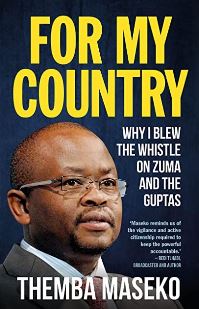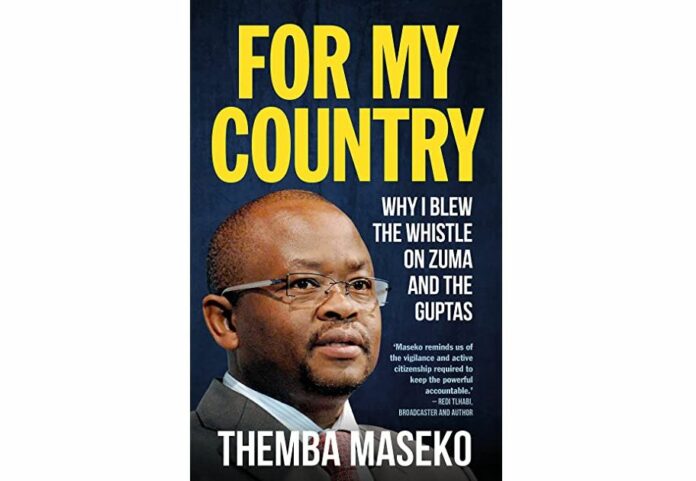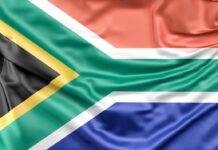Themba Maseko was an activist leader who became a lawyer and worked in the Civil Service so that he could be of more help to black people.
In the late 1800s the author’s grandparents and family were forcibly removed from their Eastern Cape farm to a township in Ermelo. His father found work in Johannesburg. Themba Maseko matriculated through his mother’s dedication and with help from nuns at the Immaculata High School.
In 1948 the Nationalist Party came to power and an inferior education syllabus for blacks was introduced. In 1975 Afrikaans became the medium of teaching language and protests in 1976 saw thousands of students, among them Hector Pietersen, killed when police used teargas and live ammunition. Thousands did not return to school, and many left for military training overseas.
Maseko applied for admission to the University of the Witwatersrand, but then Minister of Education, FW De Klerk, told him it was for whites. When laws were relaxed, Maseko graduated there in 1983 after a friend persuaded him not to leave South Africa and to complete his LLB. He was then Assistant General Secretary of the National Education Crisis Committee (NECC).
In the 1980s he became an activist and organised student movements. He was invited to join the SA Communist and ANC parties and was asked to address the rally when Archbishop Desmond Tutu received the Nobel Prize. Nelson Mandela’s daughter Zindzi read a letter from him to her, the nation and to the world denouncing conditions of release.
In 1990 President De Klerk released Mandela, who became the first President of the democratic South Africa in 1994. Four hundred new MPs were sworn in and Mandela assembled a Cabinet of former enemies. The ANC’s landslide election victory had enabled Maseko, then General Secretary of the NECC, to become an MP, aged 30. He headed the education portfolio.
He helped draft a Constitution and Bill of Rights and was appointed Superintendent-General of the Gauteng Education Department under Mary Metcalfe. He helped integrate four racially-based departments into a non-racial system. Maseko obtained his MBA, but his association with Metcalfe deteriorated and in 2003 he became Director-General of Public Works and Public Service Administration, under Stella Sigcau. Public Works had the task of creating one million jobs by 2009 and Maseko’s programme was announced in President Mbeki’s State of the Nation Address.
His relationship with Sigcau deteriorated and his contract was not extended. Joel Netshitenzhe, CEO of Government Communication and Information System, offered Maseko his job as he was moving to Mbeki’s office. He joined GCIS under Essop Pahad and had to announce Cabinet decisions to media on the day they were taken.
Schabir Shaik, Vice President Zuma’s advisor, was convicted for corruption and Mbeki dismissed Zuma. Mbeki announced that Jackie Selebi, Police Commissioner, had been arrested for corruption and fraud. Vusi Pikoli wanted to prosecute but was suspended. Maseko received calls from everywhere.
At the Polokwane Conference in 2009, Jacob Zuma became President.
The Gupta brothers were by then hand-picking appointments to SOE boards . International Marketing Council Chair, Wendy Luhabe, was dismissed and Ajay Gupta was reappointed. Zuma sent Maseko to Ajay Gupta who said all departments were to transfer media budgets, R600-million annually, to the Guptas. Maseko refused.
In nine years Zuma reshuffled Cabinet 12 times. Meetings with the private sector stopped and “white monopoly capital” was widely used.
Ajay Gupta met Maseko and told him ministers did what he told them to do. Tony Gupta spoke to him about their New Age newspaper soon to be published and said if Maseko did not meet him to discuss it he would have him replaced. When Maseko told this to Chabane, he said others had also been harassed.
Two months later Nelson Mandela was admitted to hospital. Maseko protected the family and chaired his first media briefing. Minister Lindiwe Sisulu phoned from Switzerland and said only Zuma had spoken about Mandela. The acting president had approved it but Sisulu said Maseko had defied Zuma. Maseko saw paranoia and mistrust and when he was fired he wondered how he would survive with a wife and two sons to support.
At the Cabinet meeting, e.tv broadcast his firing adding that Mzwanele Manyi had replaced him. Maseko became Director-General of the Department of Public Service and Administration, replacing Richard Baloyi, but officials continued to report to him. Maseko left in July 2011 feeling his refusal to work with the Guptas and being seen as an Mbeki man had sealed his fate. He had also defended work given to off-spring of politicians, not knowing the Guptas had given Zuma’s children government contracts.
Maseko suspected a plan for an alternative state and a move to capture state institutions. This was strengthened when Atul Gupta, not Zuma, led delegates to an economic heads of state (BRIC) function. Zuma announced that wise businessmen supported the ANC.
For a Gupta daughter’s wedding, guests landed at Waterkloof Air Force Base, and police escorted them to Sun City. Chief of State Protocol Bruce Koloane told Chabane there was pressure from number one (Zuma). At the Zondo Commission he admitted to abusing his power of office.
There was relief for Maseko when Deputy Finance Minister Ncabisi Jonas said the Guptas offered him R600-million to be Finance Minister, Vytjie Mentor said they offered her the ministry of Public Enterprises, and Mbalula was congratulated on becoming Sports Minister before his appointment.
Maseko agreed to speak to a journalist. Following publication of his revelations, the phone rang all day – with congratulations from friends and threats from KwaZulu-Natal.
The Guptas were finally to be discussed by the NEC in 2016. Mantashe was shocked by Maseko’s written claims but he stopped investigations when only one written submission came in. Many private companies had also benefited.
Maseko experienced financial difficulties, but in June 2017 Wits friend Bonang Mohale, CEO of BLSA, employed him as Communications Director. Pressure mounted against Zuma. Twenty-seven former Directors General called for an enquiry into state capture and the Guptas, dating back to 1994.
Public Protector Thuli Madonsela wanted information on state capture, the Jonas and Mentor statements and Cabinet appointments. Her report was ready by October and Zuma applied unsuccessfully to the High Court to stop publication.
At the ANC’s 54th conference, Ramaphosa became ANC leader and President, and Ace Magashule Secretary General. There were calls for the Guptas, who had left South Africa, to be extradited.
In 2018 Maseko told the Zondo Commission about his experiences with Zuma and the Guptas. President Ramaphosa gave the NPA access to investigations and law enforcement agencies, and gave the Commission the power to subpoena witnesses. Maseko was told to make a formal submission and had to submit an affidavit and he was given pro bono legal advice. Documentation had to be submitted.
During Zuma’s five-day testimony he denied everything, saying the request had come from Chabane to transfer Maseko. Baloyi testified that Chabane had approached him about the transfer from GCIS to Public Works. Zuma “exposed” detractors and made defamatory allegations, and claimed some ministers were apartheid informers. Maseko had to prepare another affidavit.
Critiques insulted him and some threatened violence. Maseko, Jonas, Mentor and others were presented with awards by the Ahmed Cathrada Foundation at a special dinner. He says he aims to continue speaking out against wrongdoing and corruption, supporting whistleblowers and being of service to the nation.
 Title: For My Country
Title: For My Country
Author: Themba Maseko
Publisher: Jonathan Ball Publishers
Price: R275
Publication date: May 2021
For more information, visit the Publisher’s website:
https://www.jonathanball.co.za/component/virtuemart/for-my-country










